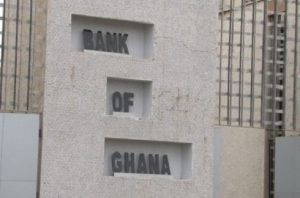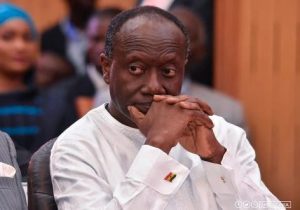 The Bank of Ghana (BoG) has asked Ghanaians not to blame the current exchange rate mess on it – they should rather blame themselves for the huge consumption of foreign goods, currency expectations and the structure of the country’s economy.
The Bank of Ghana (BoG) has asked Ghanaians not to blame the current exchange rate mess on it – they should rather blame themselves for the huge consumption of foreign goods, currency expectations and the structure of the country’s economy.
Ghana currently consumes more foreign goods than what its hard working entrepreneurs produce annually.
According to data from the Ministry of Trade and Industry (MoTI), in 2013 alone, the country spent a whopping amount of almost $1.5 billion in foreign currency on the import of rice, sugar, wheat, tomato products, frozen fish, poultry and vegetable cooking oils.
Rice accounted for $374 million, fish $283.3 million, wheat $226.7 million, poultry $169.2 million, cooking oils $127 million, tomato products $112.1 million.
An Assistant Director at the Governors’ Department at the Bank of Ghana (BoG), Dr. Johnson Asiamah, who was not happy with the level of recent backlash on the bank, over the management of the exchange rate, insisted that the BoG should not be blamed.
He told African Eye News.com , after an Institute of Economic Affairs (IEA) roundtable on effect of the exchange rate on prices and inflation in Ghana that, the Central Bank does not target exchange rate.
“We don’t have any particular exchange rate that we think must prevail. No!. What we do is to avoid excessive volatility”.
But that said, you might have situations where there are some little jumps here and there, like we have seen and then you see a correction. That does not mean that anything has gone wrong. In fact, if you look at the currency market international, one of the things you find is a lot of volatilities that occurs, Dr. Asiamah explained.
He added: “One of things we try to do is to limit those volatilities, and of course from the discussions again as I mentioned, if there is a way we can anchor this going forward, it will help this country.
“There is too much pre-occupation about the exchange rate. Even people who don’t do any international business are so much concerned about the US Dollar”.
Touching on the country’s 4.0% exchange rate pass-through which was released by the IEA survey yesterday, Dr. Asiamah admitted: “We know it is not new to us. We know that in Ghana the degree of pass-through is high. And that is what we are saying.
What it means is that whenever the exchange rate depreciates, import prices pick up and that directly feeds into consumer price inflation, which is true”.
On the issue of the BoG injecting too much dollars into the market to shore up the cedi, he explained that why the bank did that was to show its commitment to supporting the market. It doesn’t mean that every day you are holding that amount ($20 million) and go and pump into the market. What he meant was that were prepared to limit the volatility. So, you cannot just look at things arithmetically and add up and say within a month or so we are going to rundown everything. No!
“The Governor was giving the size of the broad commitment that we have to maintain stability in the exchange rate market and that was what he meant. So, the $ 20 million is not daily,” Dr Asiamah clarified.
A Visiting Senior Research Fellow at IEA, Prof Edward Ghartey, who presented the survey on the exchange rate pass-through, admonished the BoG and the government that any attempt to arrest the depreciation of the cedi must first solve the rising inflation in the country.
A renowned Senior Economist at the IEA, Dr. John Kwakye urged the BoG to try and stabilise the cedi rather than the current sharp gains, which he said was causing problem to exporters in the country.
However, Dr. Asiamah reacted that the BoG was not to blame for the sudden strengthening of the cedi.
As of Wednesday 29 July, 2015, the cedi traded at GHS3.42 against the dollar, which is a continuation of its more than a week run. This year, the cedi has depreciated 26 percent in value against the dollar. Some forex bureau operators in Accra attributed the sharp decline of the dollar and other major trading currencies to speculation in the market.
But Renaissance Capital, a leading emerging and frontier markets investment bank has hinted that the recent gains made by the Ghanaian cedi (GHS) against the US dollar will not last long.
According to the bank’s recent analysis of eight currencies in Sub-Sahara African (SSA), it maintained that the dollar is likely to strengthen further from current levels, particularly when US rate hikes begin.
African Eye News.com





